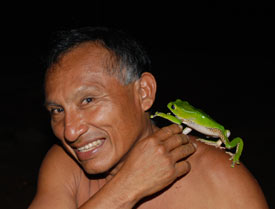
Be part of the solution! Join Eco Ola for a hands-on opportunity to restore rainforest and experience the real Amazon, inaccessible to casual tourists. We are offering a 10 day intensive permaculture course that includes green building, agroforestry, apiculture, mycology, use of draft animals, and building plant guilds like with our Eco Ola Sacha Inchi. While our work is in a rainforest environment the skills you will learn are applicable everywhere. After practicing these techniques in the challenging jungle environment you will return home ready to take your projects to the next level.
Course Sections
1) Iquitos, Peru
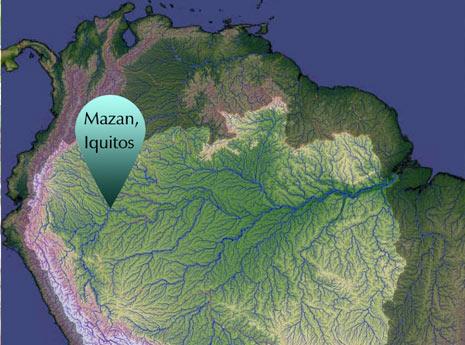 Eco Ola is based in the city of Iquitos, Peru, at the headwaters of the Amazon River. The city is surrounded by the Amazon Rainforest and is inaccessible by road. The nearby rainforest is a major center of biodiversity in addition to being the homeland to a dozen tribal groups. Iquitos became a city during the tragic rubber boom, when tribal groups were enslaved to tap rubber trees. The area is still under intense threat from timber, oil, and industrial agriculture projects. Due to the remoteness of the surrounding jungle, thus far, there are still vast areas of pristine rainforest. Eco Ola’s project area is one hour by speedboat outside the city. Our focus is to restore degraded land back to forest and to demonstrate the intrinsic value of the nearby virgin forest. We are working directly with the communities who will decide the course of development, implementing real alternatives to short sighted extractive industries. This course offers a real opportunity to live and work side by side with indigenous leaders on the frontlines of the conservation movement in the Amazon.
Eco Ola is based in the city of Iquitos, Peru, at the headwaters of the Amazon River. The city is surrounded by the Amazon Rainforest and is inaccessible by road. The nearby rainforest is a major center of biodiversity in addition to being the homeland to a dozen tribal groups. Iquitos became a city during the tragic rubber boom, when tribal groups were enslaved to tap rubber trees. The area is still under intense threat from timber, oil, and industrial agriculture projects. Due to the remoteness of the surrounding jungle, thus far, there are still vast areas of pristine rainforest. Eco Ola’s project area is one hour by speedboat outside the city. Our focus is to restore degraded land back to forest and to demonstrate the intrinsic value of the nearby virgin forest. We are working directly with the communities who will decide the course of development, implementing real alternatives to short sighted extractive industries. This course offers a real opportunity to live and work side by side with indigenous leaders on the frontlines of the conservation movement in the Amazon.
2) Green Building
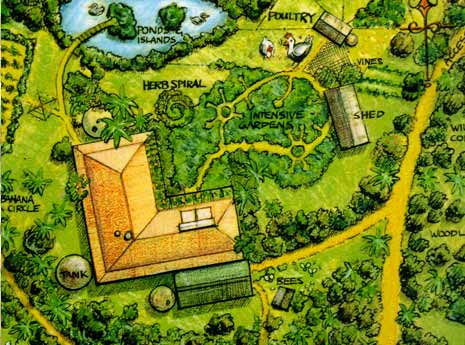 We will be building a permaculture training center for local community leaders and activists to demonstrate the vast benefits of sustainable building in the tropics. In the name of progress, many well-meaning groups build concrete boxes that are uninhabitable without air conditioning and perpetuate the cycle of dependency and non-sustainability. A truly sustainable building starts with understanding how the structure can integrate with the sun, wind, flora. fauna, topography, and hydrology of the site. We will adhere to these principles of design that are applicable everywhere with an emphasis on passive cooling to build a comfortable space without using purchased energy. We will also implement a rain catchment system, wastewater field, spiral garden, wattle and daub, cob, and many other features to make a comfortable and beautiful example of a practical alternative to the concrete box.
We will be building a permaculture training center for local community leaders and activists to demonstrate the vast benefits of sustainable building in the tropics. In the name of progress, many well-meaning groups build concrete boxes that are uninhabitable without air conditioning and perpetuate the cycle of dependency and non-sustainability. A truly sustainable building starts with understanding how the structure can integrate with the sun, wind, flora. fauna, topography, and hydrology of the site. We will adhere to these principles of design that are applicable everywhere with an emphasis on passive cooling to build a comfortable space without using purchased energy. We will also implement a rain catchment system, wastewater field, spiral garden, wattle and daub, cob, and many other features to make a comfortable and beautiful example of a practical alternative to the concrete box.
3) Polyculture and Plant Guilds
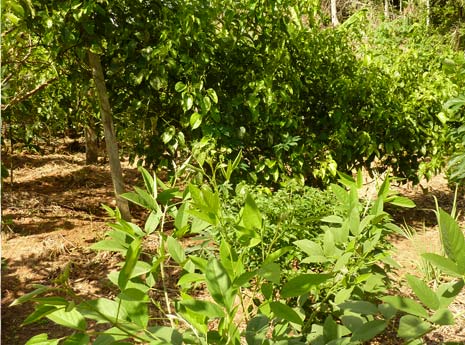 Monoculture is for amateurs! By planting many crops together we are able to add productive plants to all the available plant niches in an area. The idea is to form guilds of plants that work well together so that the plants are more productive growing next to each other than they would be alone. We have a system with 20 different crops all growing together so as to mimic the natural succession to a triple canopy forest. Because the process of building polycultures involves many iterations, participants can see the process in action.
Monoculture is for amateurs! By planting many crops together we are able to add productive plants to all the available plant niches in an area. The idea is to form guilds of plants that work well together so that the plants are more productive growing next to each other than they would be alone. We have a system with 20 different crops all growing together so as to mimic the natural succession to a triple canopy forest. Because the process of building polycultures involves many iterations, participants can see the process in action.
4) Plant Medicine
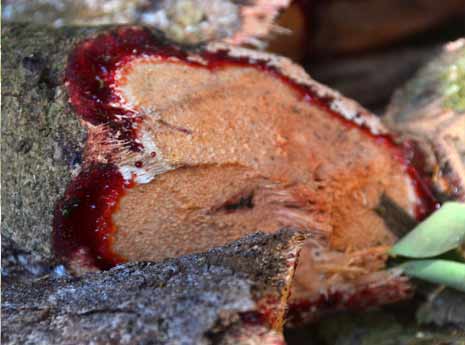 More than 40% of pharmaceutical drugs are derived from Amazonian plants! There are literally thousands of medicinal plants growing in the nearby jungle and in the forested area of our farm. We will have an opportunity to responsibly identify and collect some remarkable medicines. Some like Sangre de Grado and Uña de Gato we have been growing in our medicinal forest. We will focus on preparations and uses by indigenous people and will be joined by a Yagua Shaman!
More than 40% of pharmaceutical drugs are derived from Amazonian plants! There are literally thousands of medicinal plants growing in the nearby jungle and in the forested area of our farm. We will have an opportunity to responsibly identify and collect some remarkable medicines. Some like Sangre de Grado and Uña de Gato we have been growing in our medicinal forest. We will focus on preparations and uses by indigenous people and will be joined by a Yagua Shaman!
5) Rainforest Adventure
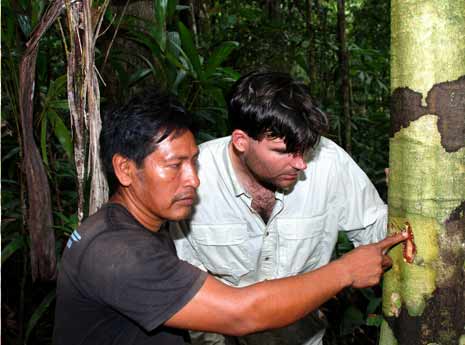 The best way to really experience the Rainforest is to hike inside, underneath the canopy. We will walk into the vast wilderness along the Napo River and camp overnight in the jungle. Once night falls we will quietly walk along a small trail to look for wildlife. This affords us the best opportunity to observe animals otherwise impossible to see. Along the way we will look for medicinal plants, birds, amphibians, and whatever else we can find. We will be led by Yagua indigenous guides and see for ourselves how they live comfortably under the canopy. **This is a strenuous journey and a shorter night walk will be made available for those not ready for a big hike.
The best way to really experience the Rainforest is to hike inside, underneath the canopy. We will walk into the vast wilderness along the Napo River and camp overnight in the jungle. Once night falls we will quietly walk along a small trail to look for wildlife. This affords us the best opportunity to observe animals otherwise impossible to see. Along the way we will look for medicinal plants, birds, amphibians, and whatever else we can find. We will be led by Yagua indigenous guides and see for ourselves how they live comfortably under the canopy. **This is a strenuous journey and a shorter night walk will be made available for those not ready for a big hike.
6) Animals in Permaculture
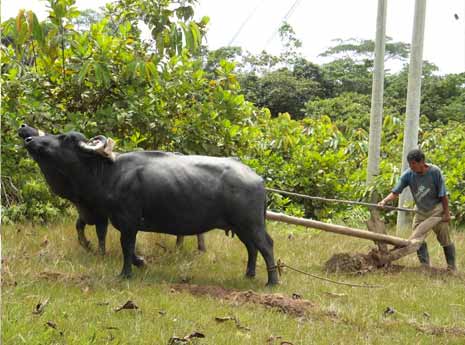 Have you ever plowed a field using a team of water buffalo? Animals play a central role in permaculture installations. Our water buffalo are not only draft animals; their manure is used for worm compost, they help with weed control, and they provide us with milk for incredible cheese! We will also work with real free-range chickens and explore their role in pest control and nutrient cycling. We also keep native stingless bees and will cover the basics of apiculture. Wait until you try the native honey!
Have you ever plowed a field using a team of water buffalo? Animals play a central role in permaculture installations. Our water buffalo are not only draft animals; their manure is used for worm compost, they help with weed control, and they provide us with milk for incredible cheese! We will also work with real free-range chickens and explore their role in pest control and nutrient cycling. We also keep native stingless bees and will cover the basics of apiculture. Wait until you try the native honey!
7) Agroforestry
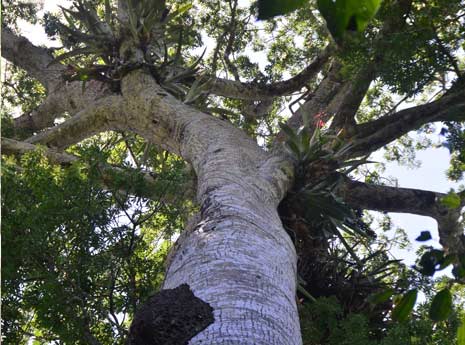 Eco Ola is blessed to have a tract of rainforest on our own working farm. While some areas will remain untouched we will be looking at ways to cultivate fruit and medicinal trees under the existing canopy. There are many understory trees of great interest not least of which is Peruvian heritage cacao. Agroforestry has the potential to transform the way people see the rainforest and their role as responsible caretakers.
Eco Ola is blessed to have a tract of rainforest on our own working farm. While some areas will remain untouched we will be looking at ways to cultivate fruit and medicinal trees under the existing canopy. There are many understory trees of great interest not least of which is Peruvian heritage cacao. Agroforestry has the potential to transform the way people see the rainforest and their role as responsible caretakers.
8) Fungi in Permaculture
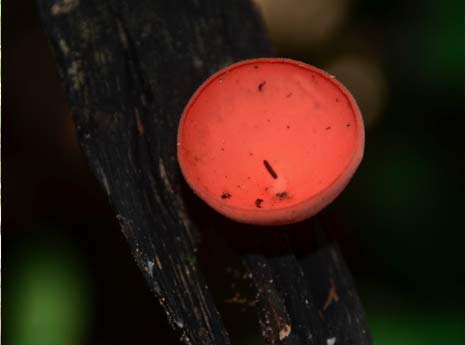 Don’t forget the fungi! The importance of fungi in permaculture and in soil building can’t be overstated. The networks of mycelium connect the trees of the forest to share nutrients, communicate threats, and to build soil. We will be joined by Amazonian mycologist Jeremiah Gillanders for hands on practice with cultivation, wild identification, media selection, and mushroom composting. If we’re lucky Jeremiah will bring along some Amazonian Purple Reishi extract for us to try.
Don’t forget the fungi! The importance of fungi in permaculture and in soil building can’t be overstated. The networks of mycelium connect the trees of the forest to share nutrients, communicate threats, and to build soil. We will be joined by Amazonian mycologist Jeremiah Gillanders for hands on practice with cultivation, wild identification, media selection, and mushroom composting. If we’re lucky Jeremiah will bring along some Amazonian Purple Reishi extract for us to try.
9) Course Details
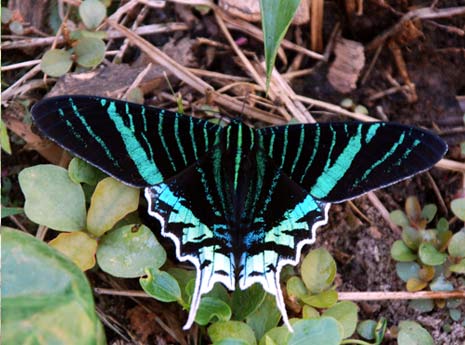 The course will take place on Eco Ola’s land and that of our partner farmers. Course contributions will go towards building a permaculture training center for local communities and future groups.
The course will take place on Eco Ola’s land and that of our partner farmers. Course contributions will go towards building a permaculture training center for local communities and future groups.
The work is real, the conditions are primitive, and it’s 100% Rainforest Immersion. This means heat, humidity and lots of insects! But regardless, it’s an opportunity like no other! Organize your friends for a real adventure!
Our staff will meet you at the airport in Iquitos, Peru. Students are responsible for purchasing their airline tickets. Airfare between Lima and Iquitos will cost approximately $250 round trip.
Accommodations: Prior to traveling to our farm students will stay at the Safari Hotel in Iquitos for one night. Students will stay at a lodge during their 8 nights on the farm. Upon completing instruction and their stay on the farm, they will stay at the Safari Hotel in Iquitos for one additional night. All accommodations are included in the price.
Course Cost: The total cost for the course is $1500. This price includes 10 nights accommodation, course instruction, meals, airport pickup, and boat travel along the Amazon River to and from our farm. For private group retreats or for information on upcoming courses email
visitperu@eco-ola.com.





